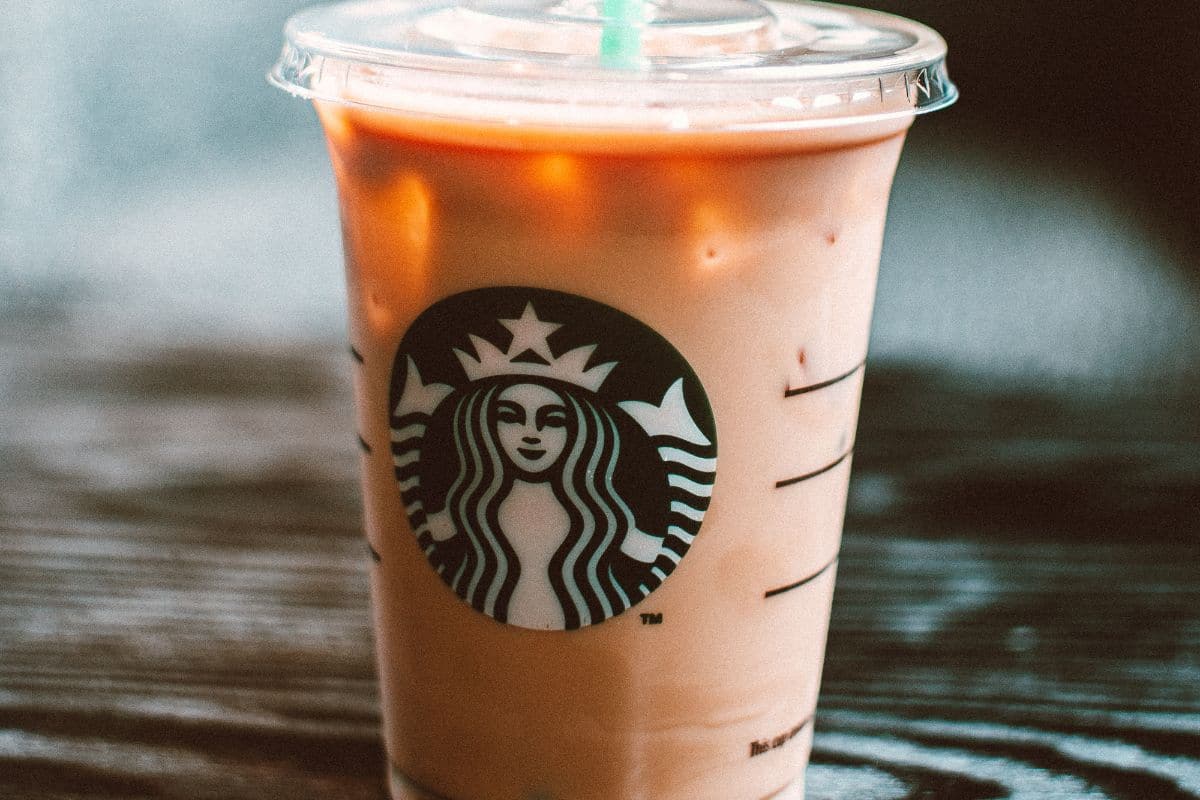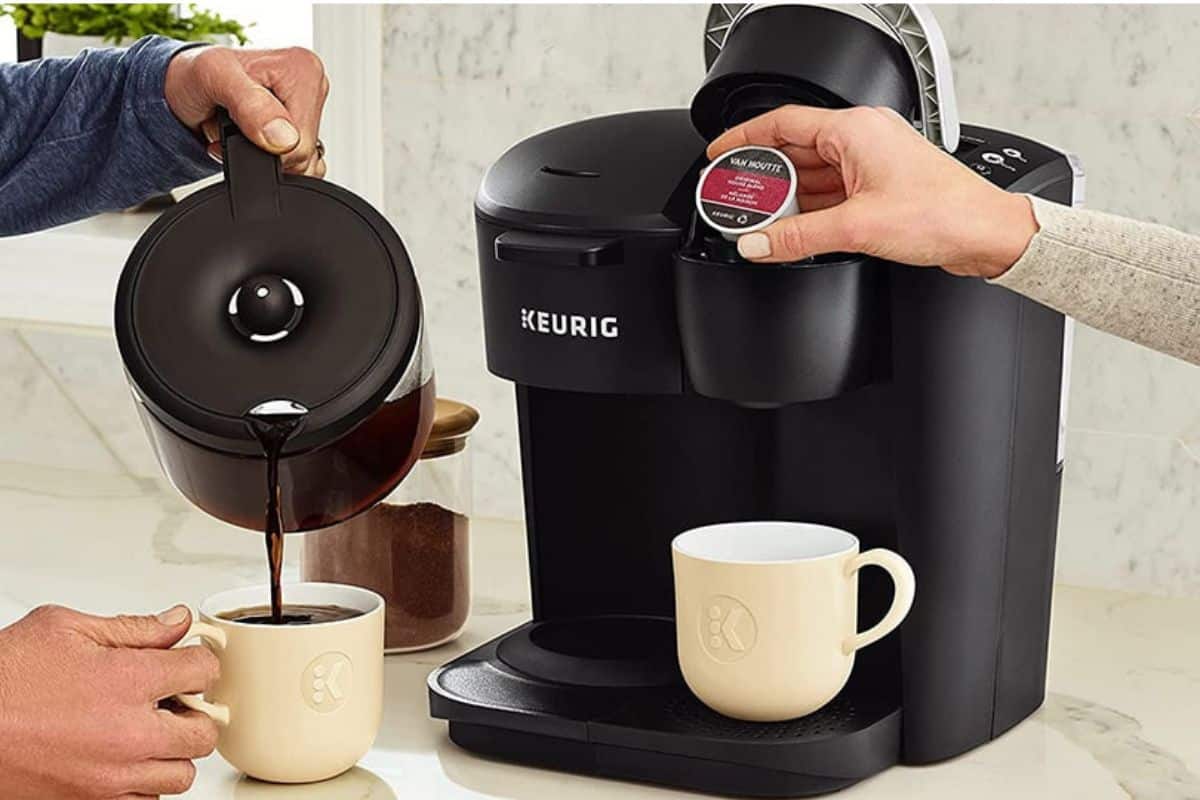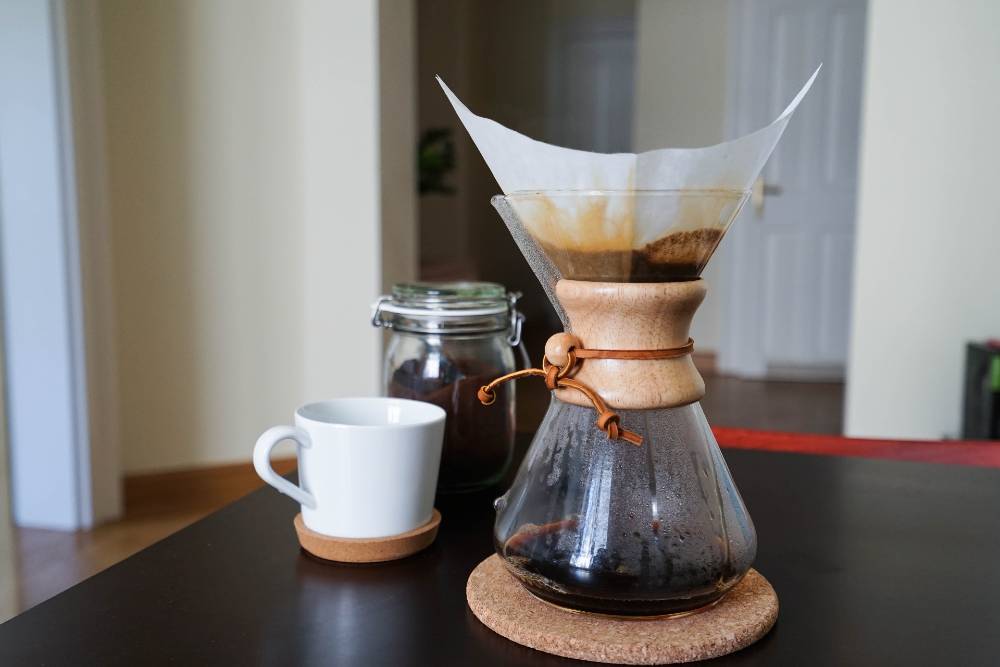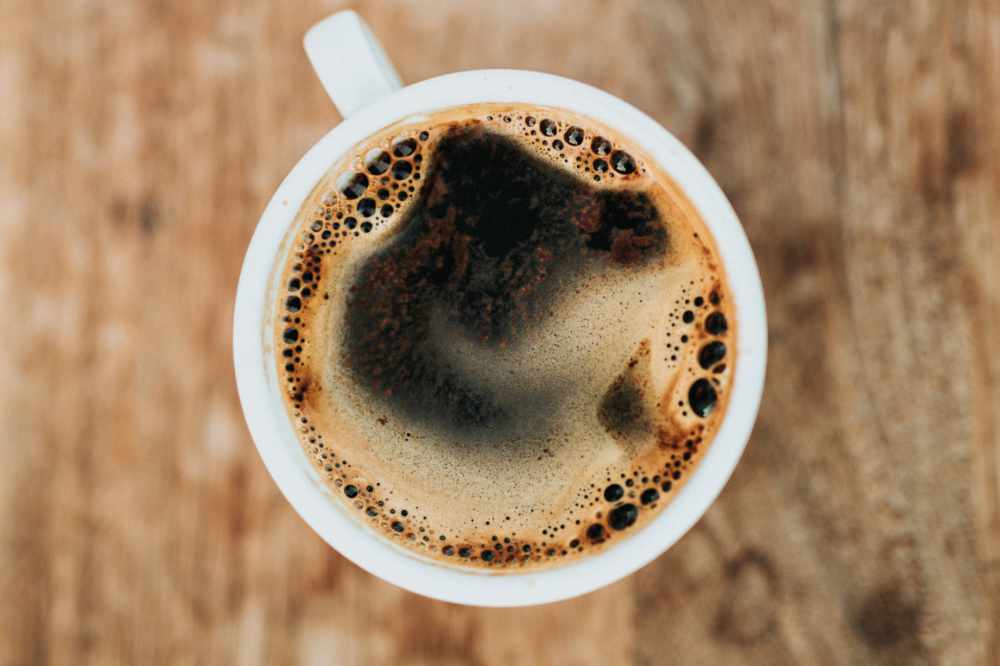I love my morning cup of java so much I literally go to bed excited to wake up and enjoy it the next day. That smooth, bold taste and wonderfully rich aroma is the very best part of the morning (and often, the whole day!).
Cleaning up after brewing coffee is less delightful. Cold, damp coffee grounds stick to everything, scatter everywhere and stain things. They cling to the coffee maker and can be a real pain to clean away.
It can seem like a simple fix to just dump them down the sink. A quick rinse and you never see them again.
Or do you?
As easy as it sounds, it’s not a good idea to dump coffee grounds down the sink. They tend to clump and stick to fatty deposits and can quickly clog up the drain pipe. You will likely find yourself meeting them again as the pipework needs to be taken apart to dislodge the pesky grounds.
To find out truly what happens when you rinse coffee down an unsuspecting drain pipe and what you should actually do with your used coffee, read on, we have all the answers here!
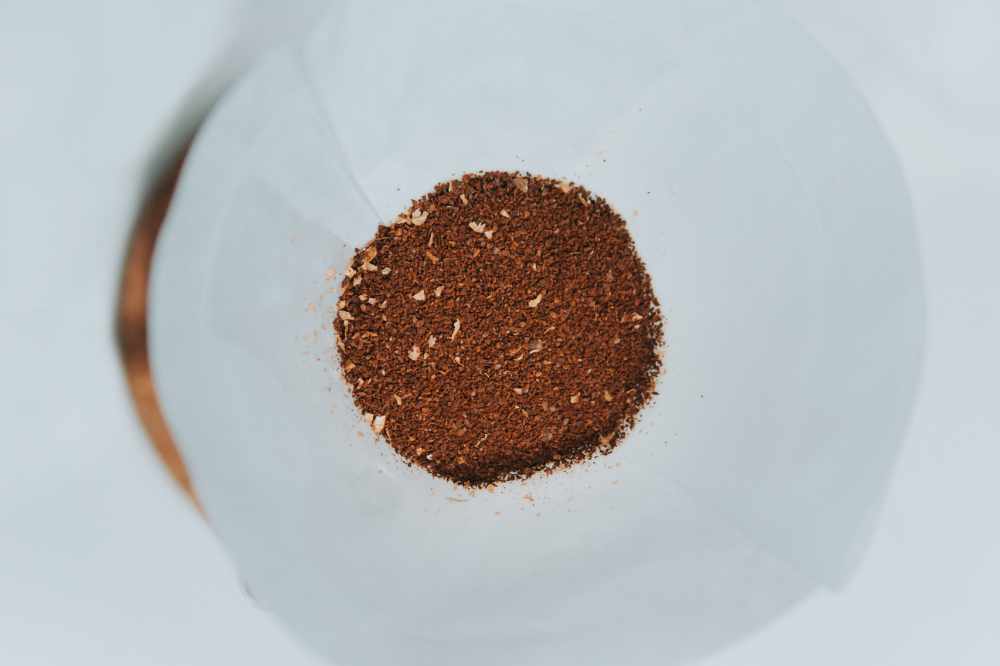
What Happens When You Rinse Used Coffee Grounds Down a Sink Drain?
If you were to take a brand new plumbing system and pour a load of coffee down it then it would likely all flush through the pipes without any hassle as long as you use plenty of fresh water to flush it through. If you don’t use enough water then the grounds can end up accumulating in the trap and build up here.
Now, this is for a new, shiny drain pipe. Most of us don’t have brand new plumbing and this is where the issue can occur. Every time you wash dishes in your kitchen sink, tiny particles of fat from cooking oil are carried down the drain. As the water cools it allows the fat to congeal on the walls of the pipes. If you’re flushing solid material like coffee grounds or other food waste down the plughole then this can end up catching on the fatty deposits and causes a build-up over time that can lead to a clogged drain.
A blockage won’t happen every time you flush a small volume of coffee grounds down the sink but if you consistently do this then the chances of a clog increase immensely. It’s not really worth the inconvenience or the costs of calling out a plumber. Even if you decide to try the flushing method, it takes a lot of water to ensure that coffee grounds are well clear of the trap and this is really not a great use of clean water.
What about a Garbage Disposal?
A garbage disposal attachment under your kitchen sink drain is a really useful piece of kit for getting rid of food scraps. It works by grinding up larger items of food such as potato peels or scraps of cooked food but there’s still a lot of debate out there about what is safe to flush down there.
It’s clear that fatty items like cooking oil and lard are absolutely not ok but ground-up coffee beans and eggshells fall into a grey area. Whilst they will pass through the disposal until fine with lots of water flushing them through, as they go down the drain they can still end up creating plumbing problems as discussed above.
Most homeowners would benefit from avoiding adding any ground coffee to the garbage disposal unless you have plumbing services on speed dial.
How to Unclog your Plumbing System
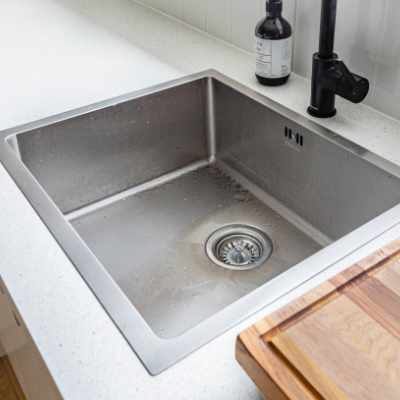
If you have gone ahead and chucked coffee grinds down the sink and now you have a drain clog to deal with, the first thing to try is to call a plumber. They will be able to solve the issue without causing any further damage and will have your sink back in working order in no time.
If you’re a bit of a DIY freak and you’re keen to fix the problem then you can try some drain cleaner. Be cautious when using chemicals as they can wear and damage the plumbing over time. They’re also not ideal if you have a septic system as they will end up in the septic tank and will kill the microbes that usually break down all the waste.
A plunger can be a good idea to help shift the coffee as the mechanical action creates suction in the pipes. Another good tip is to try using a drain line to push and break up the grounds so that the water can flow again.
An old wives trick for unclogging a drain is to use a combination of baking soda and vinegar. These two ingredients combine to fizz and bubble and can help loosen a clog. This only tends to work if the blockage is high up in the pipes.
What is the Best Way to Dispose of Coffee Grounds?
Depending on which brew method you use, clean up after making a cup of coffee can be a pain. If you’re using a drip machine or pour-over set up then you can add the coffee ground, paper filter, and all into a compost bin or trash can. Espresso is easy enough as all you need to do is tap the portafilter to dislodge the puck.
French press is one of the most popular brew methods but (in my opinion) is one of the most annoying to get clean. I start by scooping the grounds out with a spoon. Eventually, you’ll reach a point where there are still grounds left but you can’t scoop them out. Use a bit of water and swirl this around in the carafe to suspend the coffee then you can pour it into a mesh filter. I’d recommend lining the filter with some toilet paper otherwise the coffee with just end up clogging the mesh and you’ll have the same problem all over again. This can then go in the compost.
Coffee grounds break down quickly into compost and are very nourishing for most plants and for grass. They encourage earthworms which helps keep the soil healthy.
Another good use for old coffee is for skincare. They can be added to homemade soap or combined with coconut oil and used as an exfoliant. The caffeine helps increase blood flow to the skin which can help with scars and cellulite.
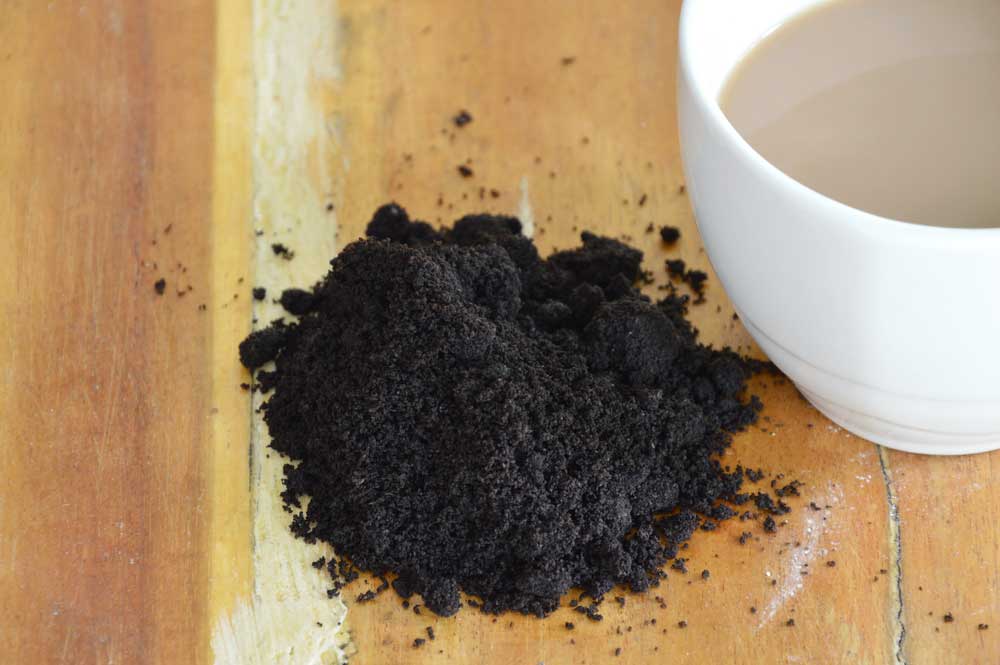
F.A.Q.s
Is it safe to pour coffee grounds down the sink?
It is not a good idea to pour coffee grounds down the sink. Whilst a few grounds ending up there by accident isn’t a major issue, dumping a full cafetiere every day will certainly cause a blockage over time.
What dissolves coffee grounds?
Coffee grounds are acidic so alkaline products work best to dissolve them when they cause a blockage. Using a combination of baking soda and hot water can help to loosen the grounds but it takes a lot to dissolve them completely.
What is the best way to clean a coffee pot?
The best way to clean a coffee pot is to use a mild dish detergent and warm water. Use a non-abrasive sponge to clean all parts of the coffee maker. Rinse thoroughly with clean water to remove all soap suds. Air dry or wipe with a lint-free cloth.
Final Thoughts
If you like it when your sink works properly and drains away the dirty dishwater then don’t go throwing coffee grounds down there. Although the coffee grounds should get carried through with the water, too often it clumps up and becomes congealed in any fat found in the pipes. This can clog up drains and can be very inconvenient and expensive if you have to call a plumber to fix the issue. Make sure you dispose of used coffee grounds in the compost or in a trash can and keep those drains healthy.


